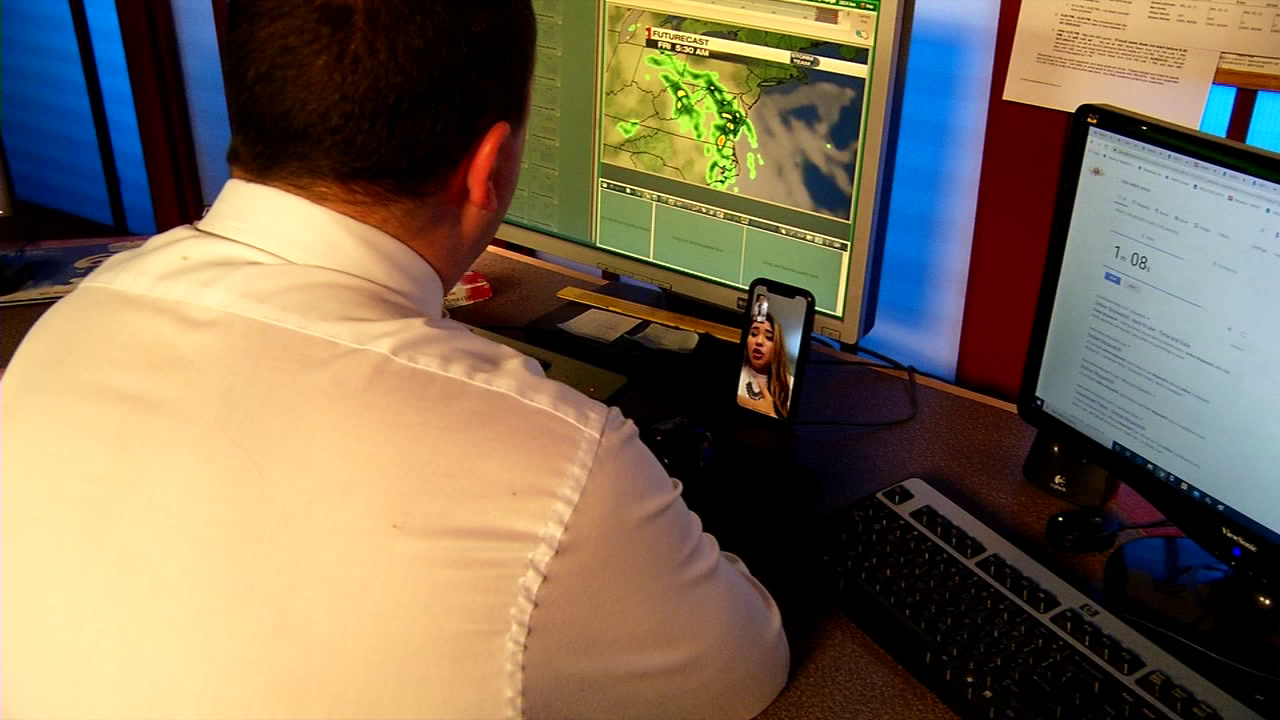
In some countries, such as in United States, there is a third way where a graduate in meteorology and communication at the college or university level can be hired as media meteorologists.

In United States, forecasters are hired by the National Weather Service or private firms after university, and receive on-the-job training, while researchers are hired according to their expertise. For example, the Meteorological Service of Canada and UK Met Office have their own training course after the university, while Météo-France takes charge of all the training once the person has passed the entrance examination at the National School of Meteorology after high school. For researchers, this training continues with higher education, while for forecasters, each country has its own way of training. To become a meteorologist, a person must take at least one undergraduate university degree in meteorology. Training In 1894, a group of US Weather Bureau forecasters at work They finally can be weather presenters in the media (radio, TV, internet). Meteorologists can also be consultants for private firms in studies for projects involving weather phenomena such as windfarms, tornado protection, etc. Collaborate with the researchers for integrating science and technology into the forecast process, in particular for indices and model outputs, for weather-dependent users such as farming, forestry, aviation, maritime shipping and fisheries, etc.Provide weather advice and guidance to private or governmental users.Analyze data and numerical weather prediction model outputs to prepare daily weather forecasts.Collect weather data in some country, but it is mostly done by technicians elsewhere.Operational meteorologists, also known as forecasters: The modeling of the atmosphere and the development of numerical weather prediction.Atmospheric convection to refine knowledge of the structure and forces involved in tropical cyclones, thunderstorms and mid-latitude storms.Air quality where they are interested in the phenomena of transport, transformation and dispersion of atmospheric pollutants and may be called upon to design scenarios for the reduction of polluting emissions.Climatology to estimate the various components of the climate and their variability to determine, for example, the wind potential of a given region or global warming.Research meteorologists are specialized in areas like: Operational meteorologist at the US Storm Prediction Center, 2006
#Television meteorologist jobs training full#
Their knowledge of applied mathematics and physics allows them to understand the full range of atmospheric phenomena, from snowflake formation to the Earth's general climate. Meteorologists study the Earth's atmosphere and its interactions with the Earth's surface, the oceans and the biosphere. They are not to be confused with weather presenters, who present the weather forecast in the media and range in training from journalists having just minimal training in meteorology to full fledged meteorologists. Meteorologists work in government agencies, private consulting and research services, industrial enterprises, utilities, radio and television stations, and in education.


Those who study meteorological phenomena are meteorologists in research, while those using mathematical models and knowledge to prepare daily weather forecasts are called weather forecasters or operational meteorologists. A meteorologist is a scientist who studies and works in the field of meteorology aiming to understand or predict Earth's atmospheric phenomena including the weather.


 0 kommentar(er)
0 kommentar(er)
